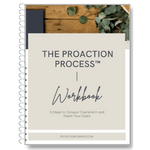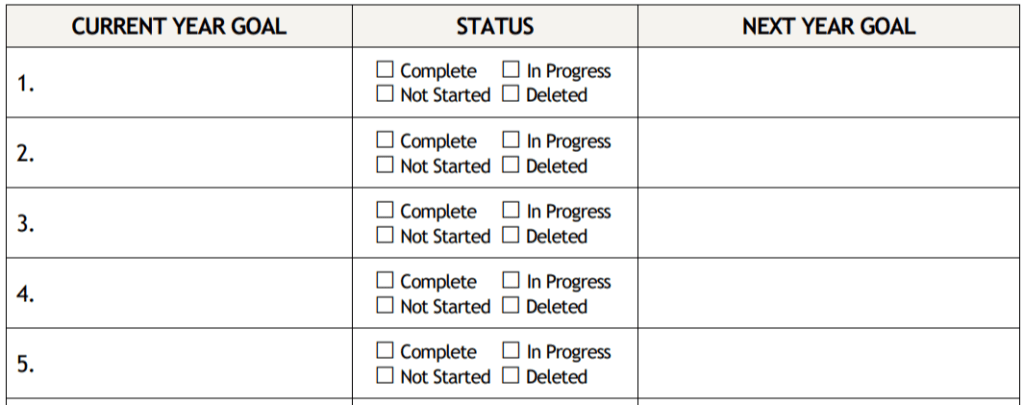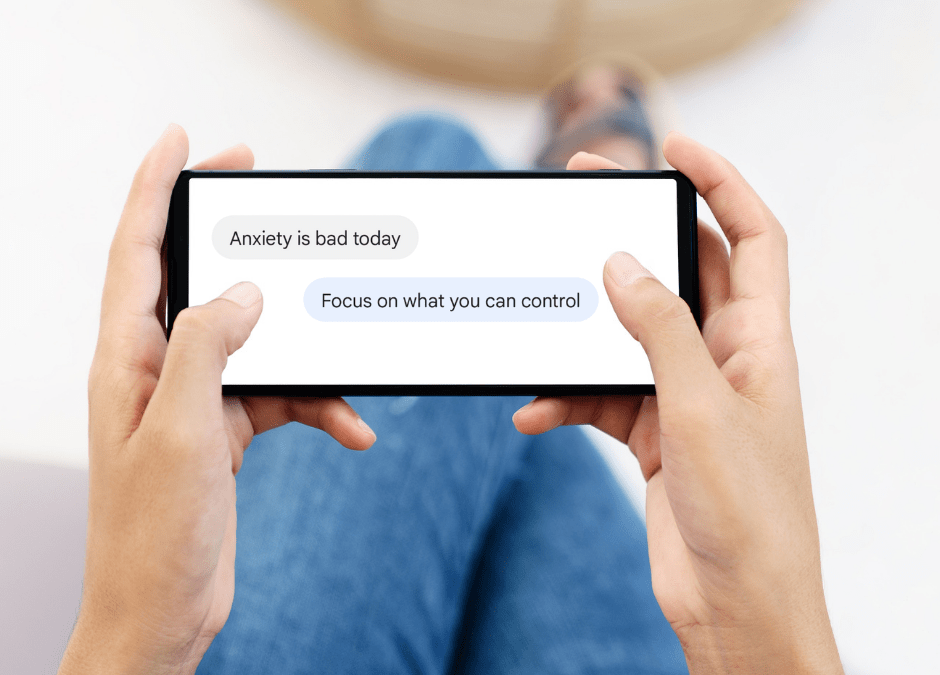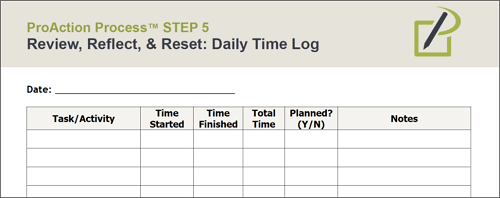
by Lori Vande Krol | Feb 6, 2023 | General Productivity, Goals and Priorities, Habits, Planning, Time Management
Julie reached out because she had reached a point of extreme frustration and overwhelm. She felt she was constantly trying to catch up, never finding time for her “important but nonurgent” tasks and projects, always worried about what she might be missing, and therefore not truly enjoying her work or personal time. Julie was always reacting to the latest emergency, others’ priorities become her priorities, and she would reach the end of the day, the week, and the year feeling drained, overwhelmed, and unaccomplished. Does this sound familiar?
After talking with Julie, we established that one change she needed was to incorporate a better system and tools for planning her time – her years, months, weeks, and days. An effective plan, and strategy to follow and maintain it, allows Julie to better understand her goals and priorities, and to make better decisions and choices throughout her days. Here I share ten proven strategies for incorporating effective planning into your own days and weeks.
1. Clarify your goals and priorities.
What is important to you in work and life? What do you hope to achieve in the long-term and short-term? If you aren’t clear on what your goals and priorities are, you can never know if you are working on the right thing at any point in time. This clarity will be the basis for your plan and the choices you make throughout the day.
2. Break down your goals into strategies and milestones.
As an elephant lover, I hate to use the saying “How do you eat an elephant? One bite at a time.” But it is a good metaphor for attacking your long-term and short-term goals. Once you know what you want to accomplish, you can break your goals into smaller pieces by defining the strategies you will use and when you will achieve various milestones.
3. Create your habits and routines.
Without good habits and routines, it is easy to let your days and weeks slip away without focusing on what is most important. Spend some time figuring out how you will incorporate the needed activities and time to reach your goals. List the habits you want to follow annually, monthly, weekly, and daily. Define daily routines such as tasks or actions you will take each morning, start of day, end of day, and evening.
4. Establish your boundaries.
It is likely that you will need to establish new boundaries in order to be successful in reaching your goals and sticking with your plan. Some examples might include:
- I will return emails and phone calls within 24 hours.
- I will take 1 day to review any new priorities, tasks, or projects before providing an answer.
- I will say “no” to anything that does not support my annual goals.
- I will not take on new volunteer positions this year.
- I will not respond to email or text after 6pm or on weekends.
- I will be in bed by 11pm and up by 7am each day.
Choose boundaries that work for your needs and personality and that will help you to reach your goals.
5. Get the right people on board.
Who will be impacted by your goals, strategies, habits, and routines? Do you have someone to help hold you accountable? Who can help support your plan? Be sure these people are aware of your plan, your boundaries, and how they can help you be successful.
6. Clear your space and your mind.
Take time regularly to clear your physical, digital, and mental space. If necessary, set aside a day or more to create an environment where you can focus and be intentional.
7. Determine the right tools.
What tools can you use to support your planning, focus, and daily intention and action? My favorite tools for daily and weekly planning are Microsoft Outlook/Tasks and the ProAction Planner. Do your research and find tools that will allow you to plan, reflect, track, and maintain. When working with others, it is also important to implement tools that will help you plan, collaborate, and track projects and tasks with them. Examples include Microsoft Planner and Teams, Asana, Trello, and Google Workspace. These are just a few of the many options available. Be sure to determine your needs and find what will best fit those needs.
8. Plan your weeks and days.
Set aside time regularly to plan your weeks and days based on your annual goals, habits, routines, and other priorities. Block time for the important, but nonurgent, projects and tasks. While it is rare that your week will go exactly as planned, having this basis as you begin your week will provide control and perspective, and allow you to make better-informed decisions when new urgencies arise.
9. Track.
Incorporate a system to track progress on your projects, goals, and habits. Review this regularly in order to evaluate and reset as needed throughout the year. You might also consider a look at how you spend your time and how closely you stick to your plan. Each day, evaluate challenges and areas for improvement. Small changes can yield big results.
10. Reflect and improve.
In addition to tracking your progress, schedule regular time to reflect on your results in order to make appropriate adjustments and allow for continuous improvement. This might include a quick daily and/or weekly reflection, a more thoughtful monthly reflection, and a deeper annual review and reflection. What went well? What challenges did you face? What will you stop, start, or continue doing? This is also a great time to practice gratitude. Be kind to yourself and others.
After clarifying her goals and priorities and putting the systems above in place to fit her needs, work, and lifestyle, Julie is feeling much more in control of her time. She is living intentionally and working proactively which has reduced stress and overwhelm. But the biggest and best change is that Julie is enjoying her work again and is able to focus on those people and things that matter most in life.

Need some tools to assist with the areas above? Check out our new ProAction Process™ Workbook packed full of tips, templates, worksheets, and exercises to support these areas of planning and more.
If you’d like a partner in helping you address your overwhelm and reach your goals, I’d love to talk. Reach out or schedule your free 30-minute consultation.

by Lori Vande Krol | Dec 19, 2022 | General Productivity, Goals and Priorities, Habits, Planning, Time Management
How has 2022 been for you? What went well? What could be improved? Did you reach your business and life goals? What will you do differently next year to grow further?
Before you do 2023 annual planning, it is a valuable exercise to close out the year and prepare for the new one by reviewing your goals, habits, and routines. Follow the steps below to review and reset for continued success.
1. Reflect
Look back on the past year and answer reflection questions such as:
- What did I accomplish this year?
- What am I proud of?
- What am I thankful for?
- What should I celebrate?
- What will I continue to do that contributed to my success?
- What were my challenges this year?
- What could/would I have done differently?
- What is one thing I could do to improve next year?
Set aside focused time to write your answers to these questions. You may be surprised at what you learn about yourself, your systems and habits, and how to address challenges in the upcoming year.
For example, during my Year in Review, I realized I am not diligent about scheduling time into my calendar at the beginning of each week for the “important but not urgent” tasks and projects. I, therefore, have not made the progress I wanted on many of these projects. I need to create a routine of setting aside time each week, just as I do with my exercise, before I build in other tasks and appointments. This will now be part of my planning process for 2023.
2. Review Your Annual Goals
The second step in your Year in Review is to review the status of your current year annual goals – both professional and personal. What goals are complete? What contributed to that success? Do you have goals that are not complete, or were not even started? If so, what challenges prevented their completion? Or perhaps there was a change in priority or focus during the year. Determine which of these goals should remain for the upcoming year and write any notes to carry into your 2023 annual goal setting.

3. Analyze Your Habits and Routines
How did you do on your goals and progress related to your defined habits this year? Review your habit tracking tables and schedule time to reward yourself for any goals reached. Will these habits continue or grow?
For those habits that were a struggle, analyze the reasons and what needs to change in the upcoming year. Do you understand the deeper “why” for the habit? Do you have the right tools in place? Do you need an accountability partner or coach? Determine the habits you will stop, continue, or update for the upcoming year.
Similarly, review your current routines (or routines you had hoped to establish this year). Look at your morning, start of day, end of day, and evening routines. How are they working for you? Do they need to be adjusted or reset? Establish the routines you would like to implement in 2023.
To help you with your Year In Review, I have created a downloadable template to walk you through the process. Click below to have it emailed to you.
Year in Review Template
FREE DOWNLOAD
You can also find this template, along with other valuable planning exercises and templates, at ProActionPlanner.com. Get them soon as they will only be free until the of the year.
If you’d like assistance with review and reflection, the goal-setting process, or in setting up systems for success, contact Lori at Life Made Simple or schedule your free 30-minute consultation. I’d love to help!

by Lori Vande Krol | Mar 3, 2022 | Goals and Priorities, Habits, Mental Health, Planning, Time Management
My daughter was recently feeling some anxiety at school and texted to let me know. One of the responses I texted back was to “focus on what you can control.” It had an impact, and she decided to post it on social media. The next day she told me it was her most shared post ever – it resonated with many of her followers.
Later that week, a coaching client shared a challenge she had encountered when an unexpected issue arose that stopped her in her tracks. It caused her stress and frustration and caused her to lose many hours of time. As we talked through her reaction to the situation, I asked her, “Looking back, what could you control about the situation at that moment?”, “What was the appropriate reaction?”, “What next steps did you take, or could you have taken?”
With so much out of our control on a daily basis, it’s important to control what we can, be intentional about our thoughts and choices, and act based on this. It’s not always easy but worrying about things we have no control over wastes time and energy and increases stress.
Below are a few tools you might consider to help you focus on those things you can control, so you can better cope with the unexpected and uncontrollable.
Plan
Do you often feel you are constantly reacting to the current “fire” or “squeaky wheel”? Some believe there is no use in planning if things are out of your control anyway. But, this is exactly the reason for it. Planning allows you to gain control over your time and actions in a proactive way. It gives you a better understanding of what is urgent and what is important. Then when the unexpected occurs you can more easily adjust and make intentional choices about if, and how, it fits into your plan. By planning you are making a habit of “focusing on what you can control.”
Stop and Think, Then Act
When the unexpected occurs, or you are feeling anxiety at a certain moment, step back from the situation and ask yourself the following questions:
-
- What can I control about this situation or about what I am feeling?
- Is this my worry or my challenge to handle or does it belong to someone else?
- What specific action(s) can I take to move forward?
Taking a moment to answer these questions will allow you to refocus and transition from being reactive to proactive, allowing for intentional choices about your next thoughts and actions.
Journal
If you are someone who best processes information by writing, take some time to journal your answers to the questions above. Journaling daily on anything that weighs on your mind is a great habit to develop to gain control over your thoughts and actions.
Meditate or Pray
Depending on your spiritual preference, tools such as meditation and prayer can help keep your mind focused and present, along with other benefits. Practicing regularly will help train your mind to react in a more relaxed and focused way when dealing with unexpected and challenging situations. There are many free apps that can help you learn and practice these techniques including Calm, Headspace, and Insight Timer.
What tools or techniques have you found to help you decrease anxiety and stress and focus on the things you can control? Share them in the comments below!

by Lori Vande Krol | May 20, 2021 | General Productivity, Planning
I had a blog ready to post this month but changed my mind at the last minute. The original blog I wrote focused on the importance of tying a clear vision, goals, and priorities to your daily to-do list. While I still think this is vital to making sure you are working on the right things each day, I decided to put that blog aside until next month. What has been coming up over and over the past week, that I felt more important to share this month, is the fact that no matter how much we plan and prepare, life often throws us curve balls. I’m sure no one would argue, especially in the environment of the past year. So, why even plan at all?
Why Plan?
Planning takes time. It requires difficult decisions. Good planning also creates the need to know your vision, goals, and priorities. Some people may determine the time and effort isn’t worth it…life doesn’t go according to plan anyway, right? But without a plan, without the knowledge and clarity of who you want to be, where you want to go, and how you will get there, the odds of reaching your goals are very low. Without a plan, the stress of the unexpected and the unknown is much higher. Without a plan, you are reacting to the needs and changes around you without intentional thought and value-based decisions.
With a plan in place, you gain more control over your days, your weeks, and your life. A plan puts systems and boundaries around the chaos. Barbara Hemphill, a mentor and leader in the productivity industry, says “Control what you can, so you can cope with what you can’t.” Planning provides you with this control. When the uncontrollable occurs and you are required to “pivot,” you can do so with a great deal more confidence that you are making the right choices. The stress and overwhelm that often results from change is much lower. Your original plan is adjusted, not forgotten, so you will continue to progress towards your vision for success.
Characteristics of a Good Plan
How do you create a plan that allows for the unexpected or for a change in direction? Following are the key features of a good plan:
- It ties to your life and career mission, vision, priorities, and long-term goals,
- It is written. Studies show writing something down makes it more likely to happen and allows for better processing, so pen to paper is ideal, but getting it out of your head and in digital form is better than not getting it down at all,
- It leaves room for flexibility. In other words, don’t plan every minute of every day.
- It is reviewed and reset regularly.
Stay tuned for next month’s blog as I dive deeper into #1 above which is the key to creating the best plan for YOU.
If you need some assistance with creating or adjusting your planning process, I’d love to help. Click to learn more about my Productivity Coaching plans.








Recent Comments